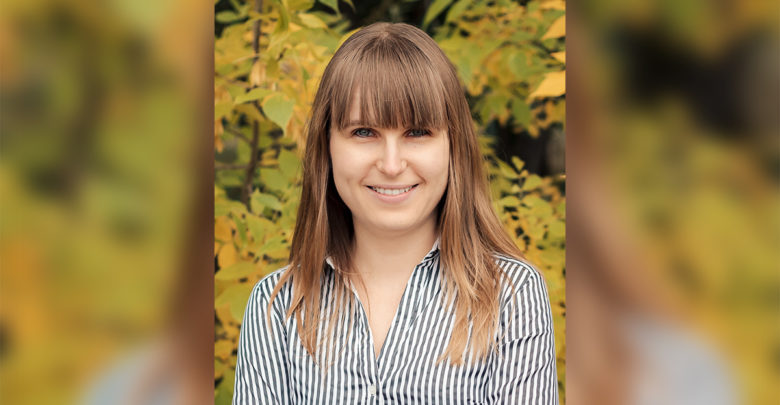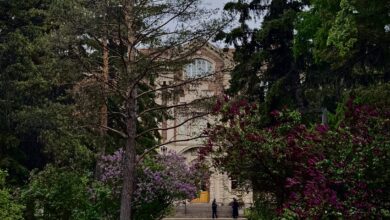Going virtual: A U of A instructor’s experience with remote teaching
From remote delivery to personal obstacles, instructors at the University of Alberta are trying to adapt to “a semester like no other”
 Supplied
SuppliedConcerned about their students while also balancing potentially chaotic personal lives, instructors at the University of Alberta continue to adapt to the ever-changing situation of remote teaching.
With the Fall 2020 term predominantly dependent on remote teaching, instructors such as Isabell Hubert Lyall, a U of A linguistics instructor, are encountering the challenge of developing new course structures to meet the needs of their students.
When class went remote in March, Hubert Lyall was lucky to be in a position where she already had exposure to teaching online classes. However, she found many of her colleagues struggled to adapt to this new way of teaching.
“Being in the fortunate position that I happened to be teaching online, I was able to help some of my colleagues because some of them have never edited a video on a computer because they’ve never had to do that,” she said. “For some of them, it was quite difficult, especially on such short notice.”
However, even Hubert Lyall’s experience with remote teaching did not help her when final exam season began. While she initially planned an in-person final, she made do with administering an open-book exam.
“[The final exam] was definitely a big change because it was not meant to be [open-book] and it meant going back on a lot of arrangements that we made [with the students],” she recalled.
For the Fall term, Hubert Lyall is faced with a new obstacle: the prospect of teaching a course she has never taught before — a course even more hands-on than last semester
“Early in the year I was looking forward to teaching this class because it was going to be an upper-level class,” she said. “It’s a very practical course, so it would have been nice just to sit around a big table with everyone.”
With international students making up more than 36 per cent of the U of A graduate student population, the challenge with time zones and international students is also prevalent for Hubert Lyall as she decides how to deliver her course.
“I initially had planned to have some mandatory real time component,” she described. “But since … graduate students could be all over the world it was going to be very difficult”
“I do have a real time component, but it’s not mandatory, because otherwise I think it would be difficult to require that from students because we don’t know where they are in the world.”
The issues Hubert Lyall encountered were not limited to just how to deliver the course content, but also how to actually record her lectures. From competing with the ever present construction in the city to wrestling with stubborn recording equipment, the problems seemed unceasing.
“I found preparing for remote delivery is a little bit different because the recording and the editing takes up more time, so I’ve had to start earlier than I would have normally started to prepare my class,” she said. “[Also] my camera kept doing funky stuff: it was green or yellow and sometimes the sound was off.”
Hubert Lyall wants to remind students that even though professors are often seen as reservoirs of knowledge and experience, they are still human and are deeply impacted by this pandemic.
“Some of us have pre-existing health conditions, it would be really bad if we got COVID-19,” she explained. “Some of us live with elderly relatives and we need to be sure that they’re safe, some of us have children. Child care in this time has been crazy”
Although she would like students to be more considerate of their instructors, she is also understanding and empathetic as she remembers herself as a student.
“I know when I was in my undergrad, I thought that instructors and professors are all above the fray and they had answers to everything and [professors] really don’t; we’re as affected by this pandemic as the students are,” Hubert Lyall said.
“[We as humans] operate from [our] own viewpoint,” she added. “Especially in a stressful situation … it comes out a little bit more and [we] tend to forget about the problems other people might have.”
Even with the hassle the global pandemic has caused the university, Hubert Lyall is still looking forward to starting the new school year and teaching her students, albeit in novel ways.
“I know it’s a semester like no other, but I’m still looking forward to teaching my course and I hope the students will get something out of it,” she said. “We’ll just try to make the best of it. I know it’s a whole unique situation that we’re in, but we gotta do the best that we can.”



